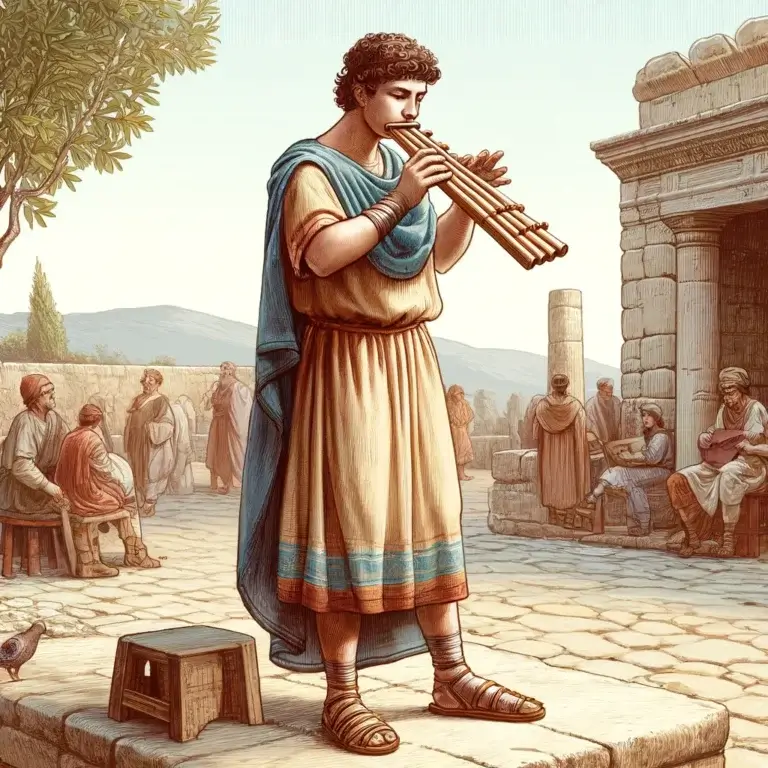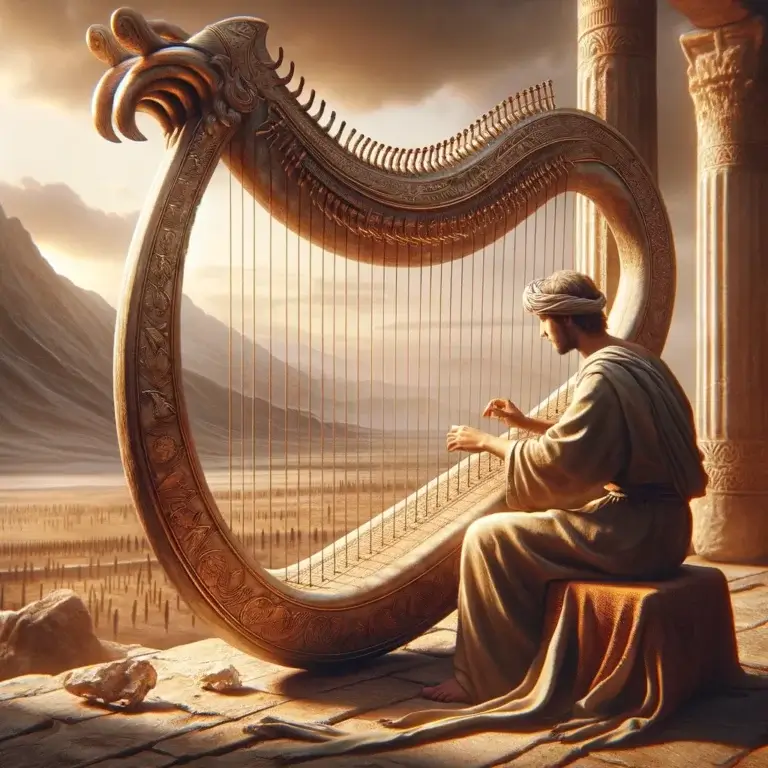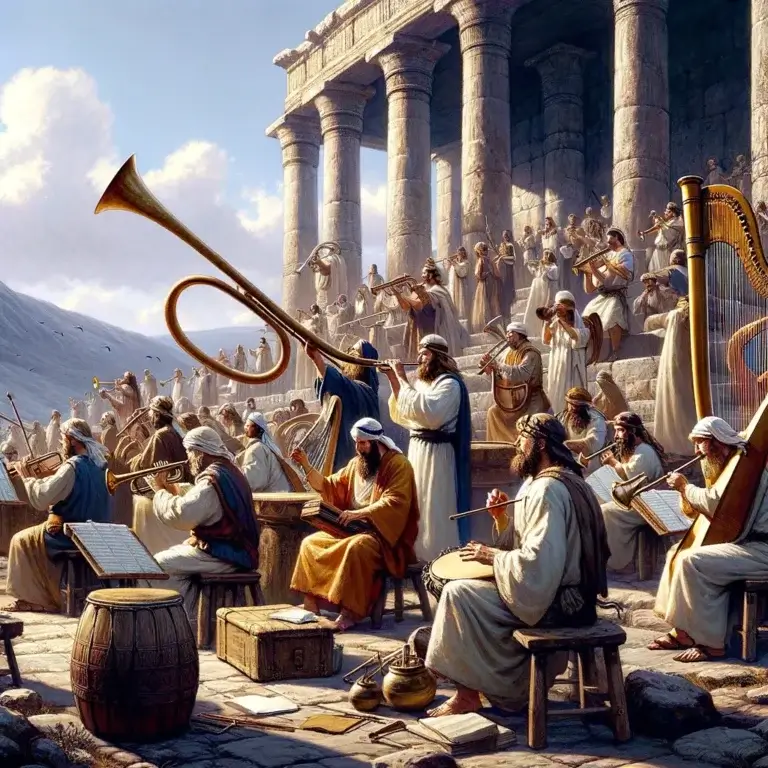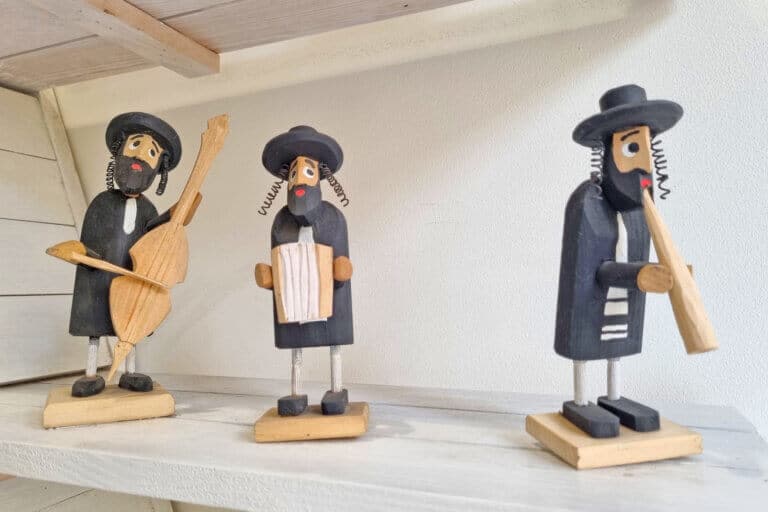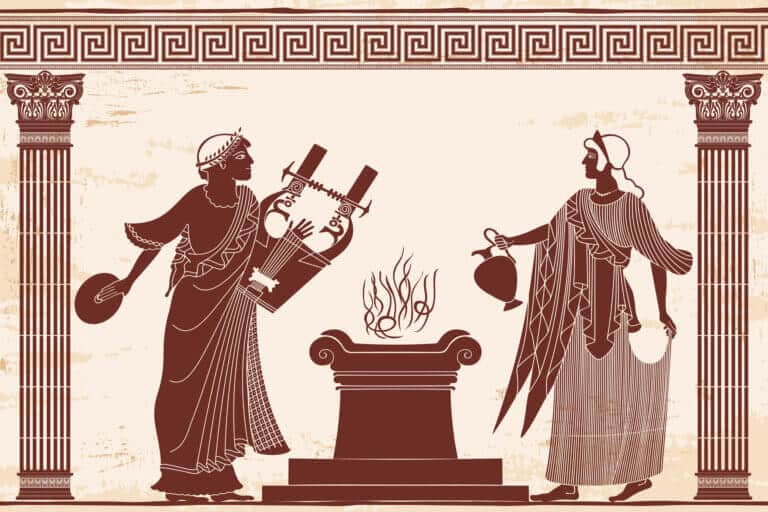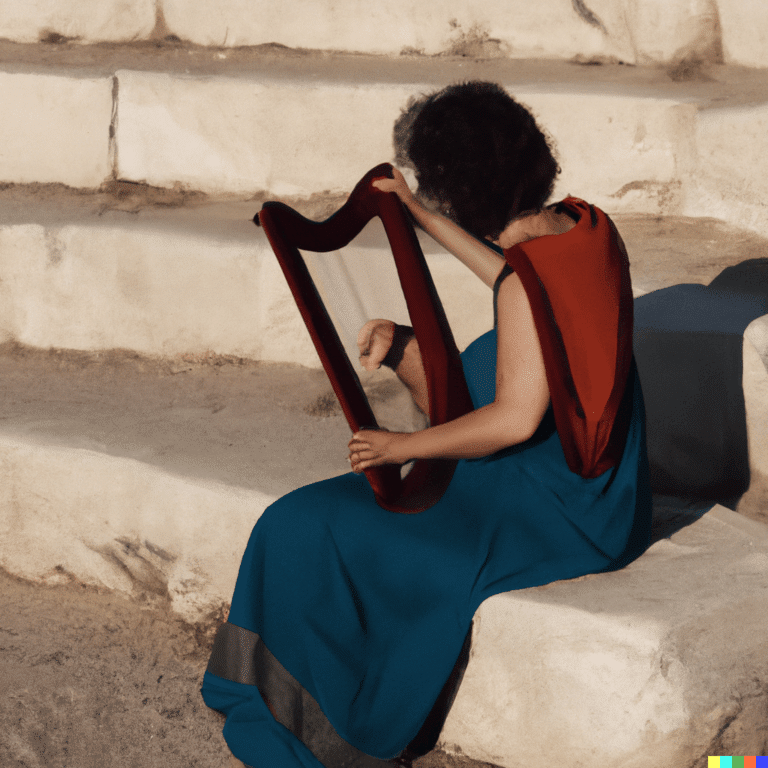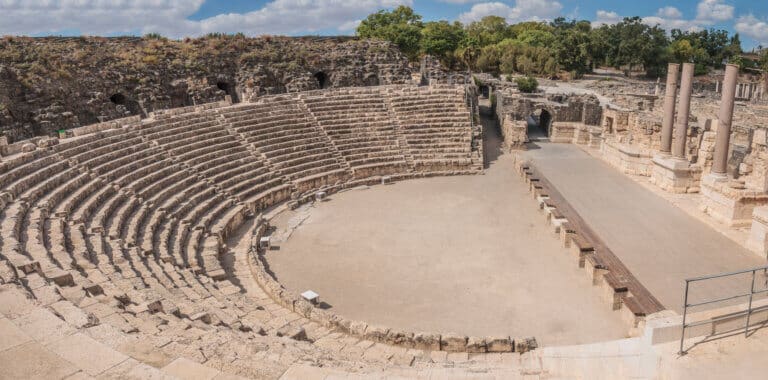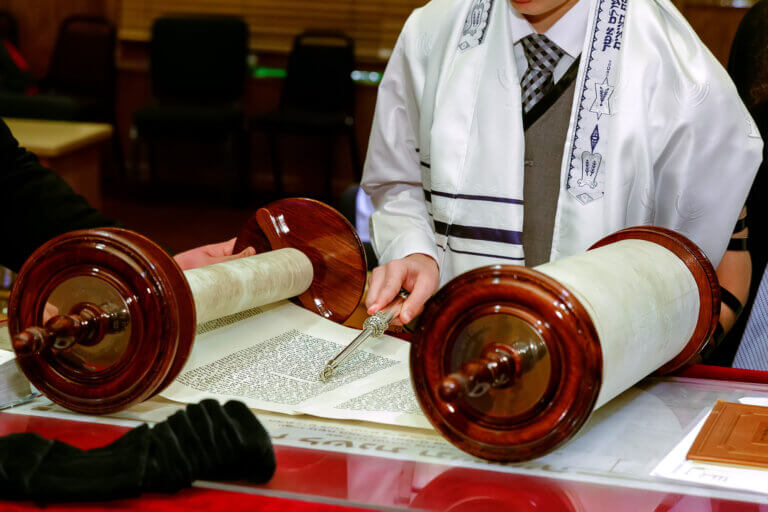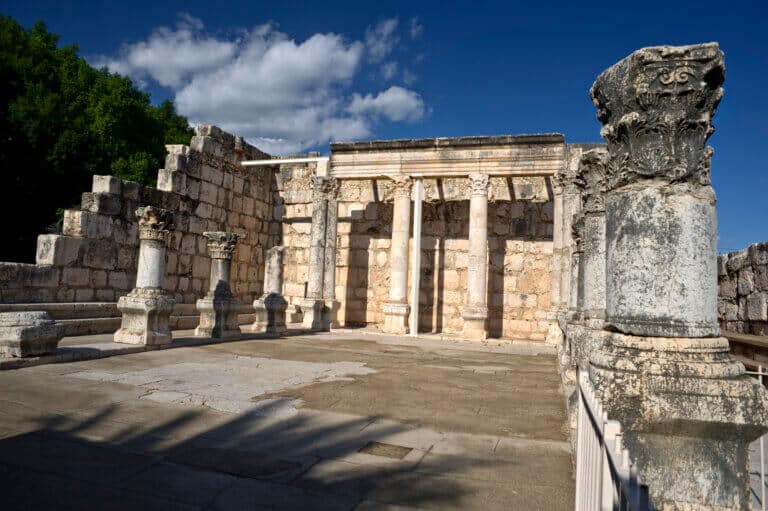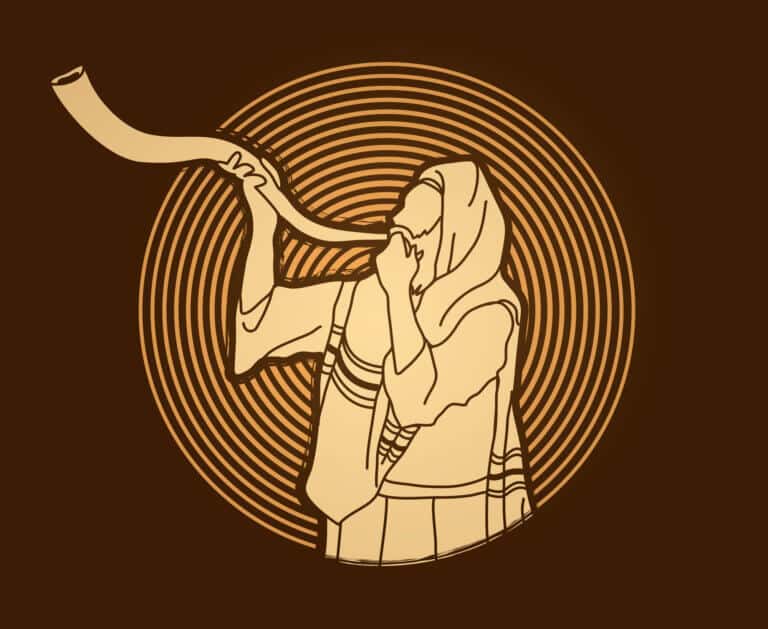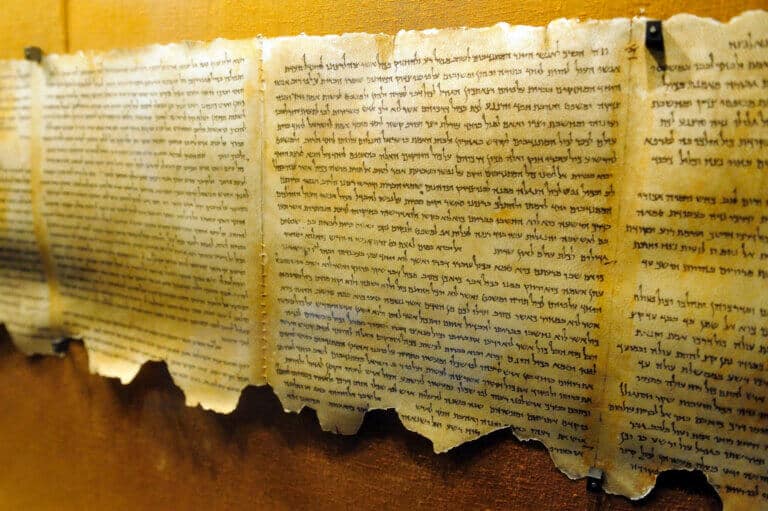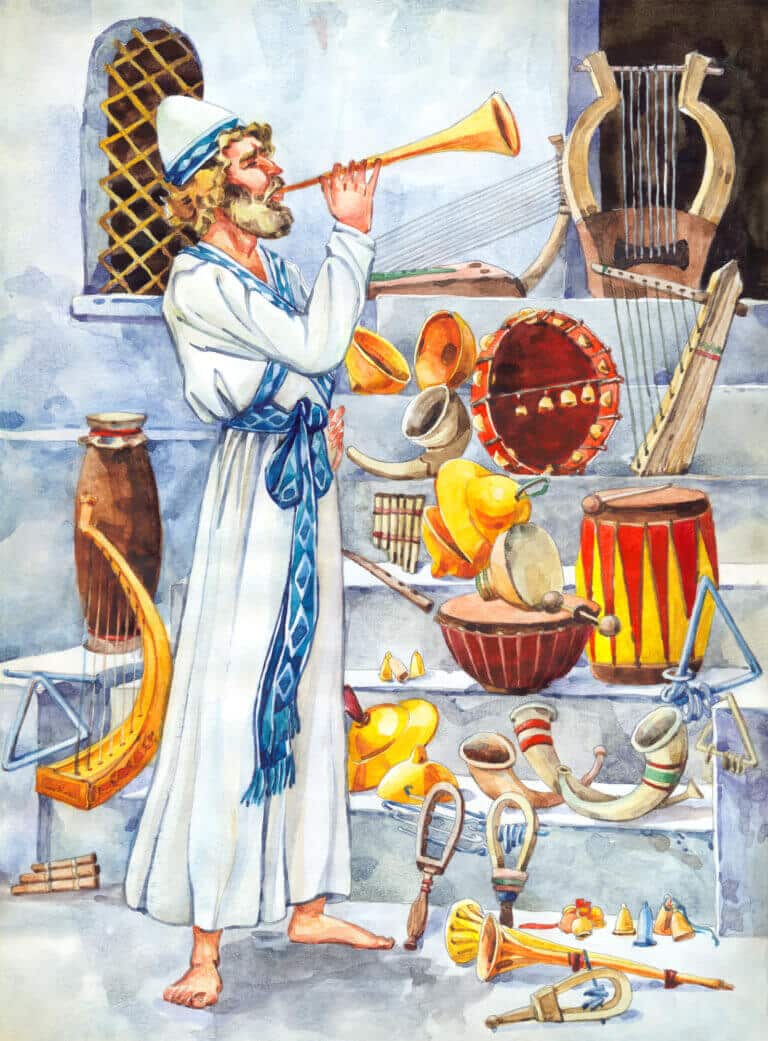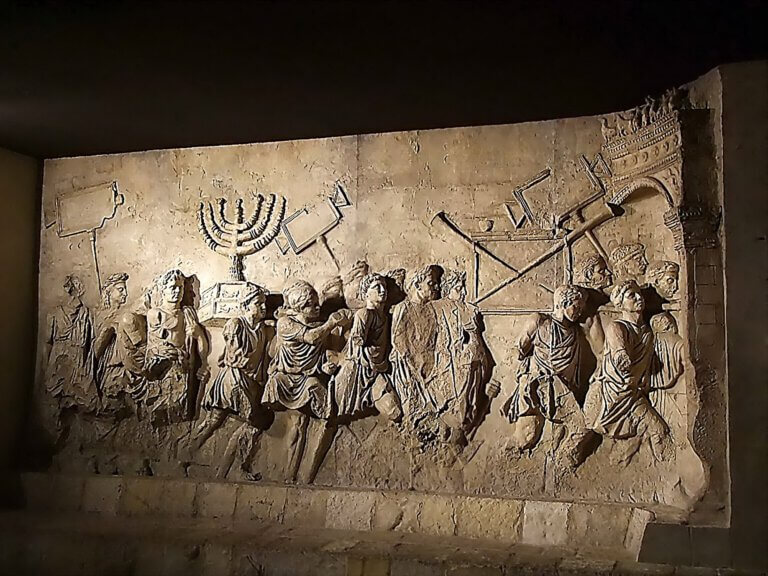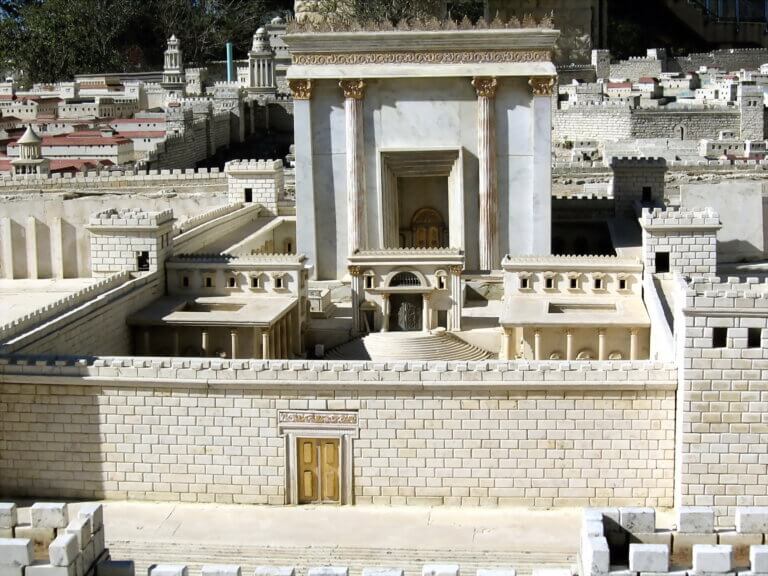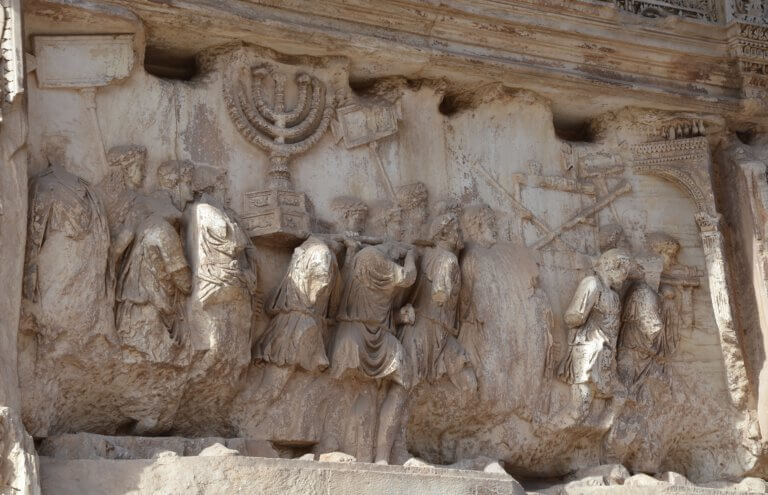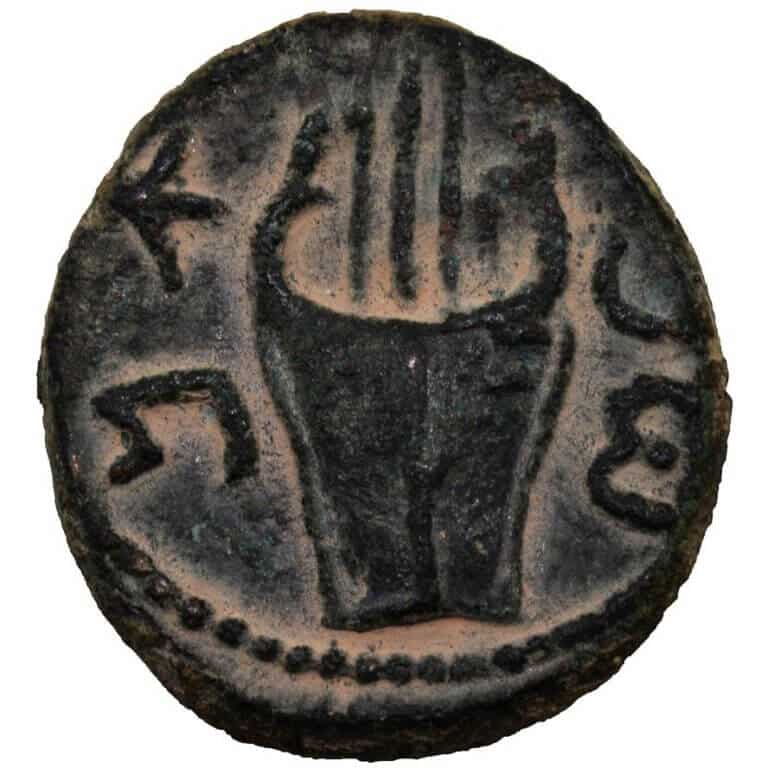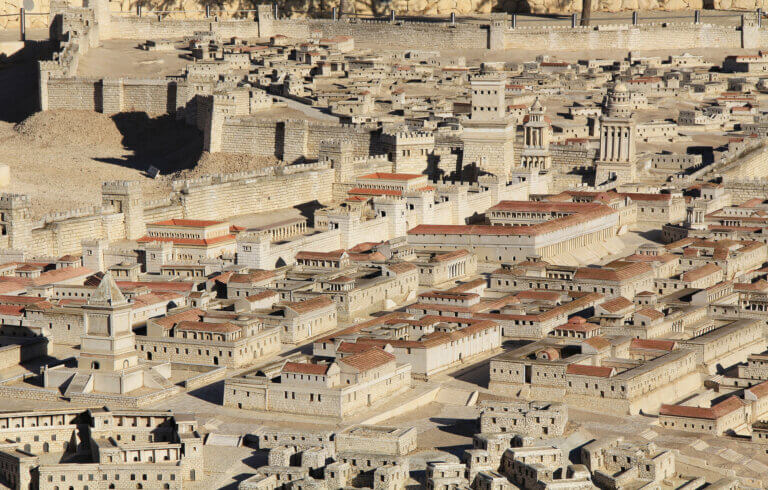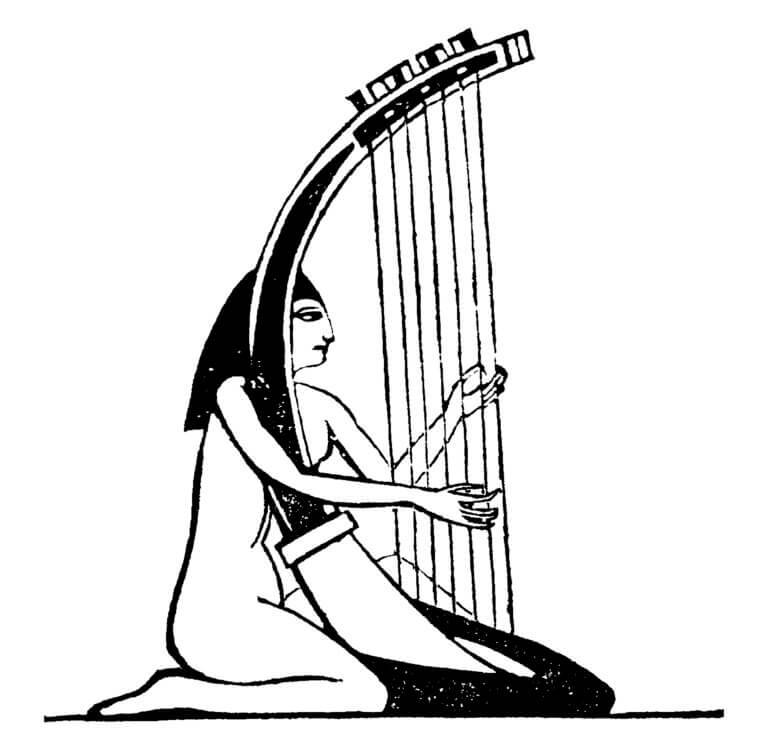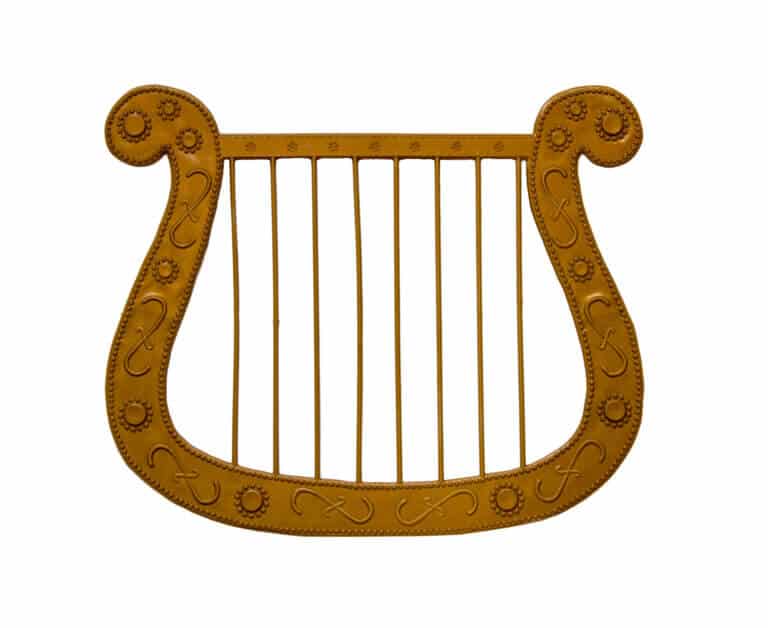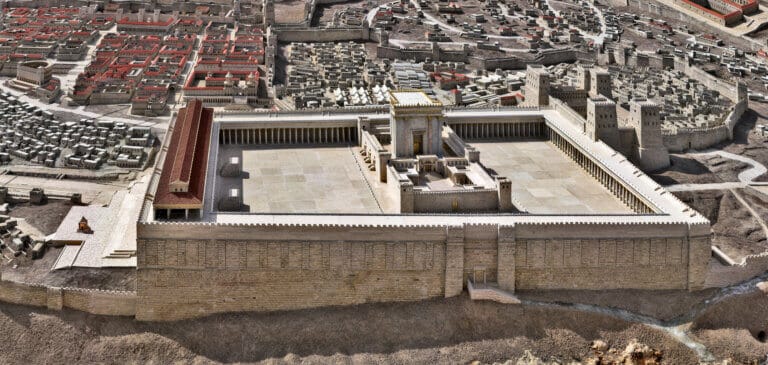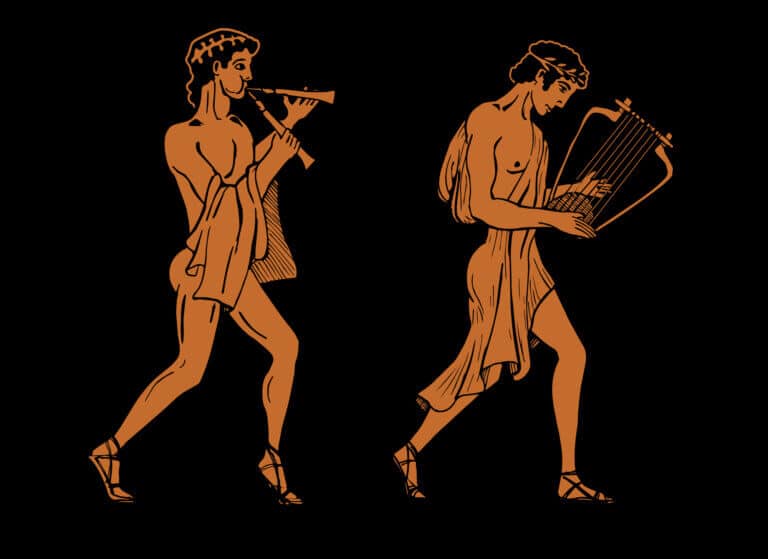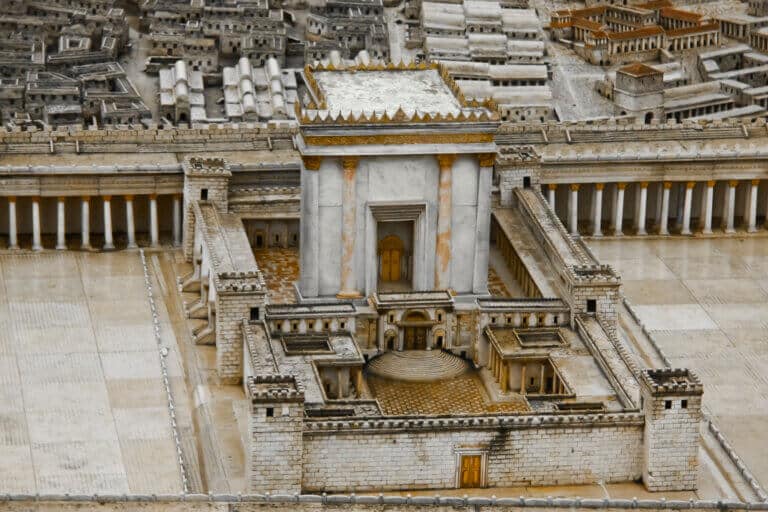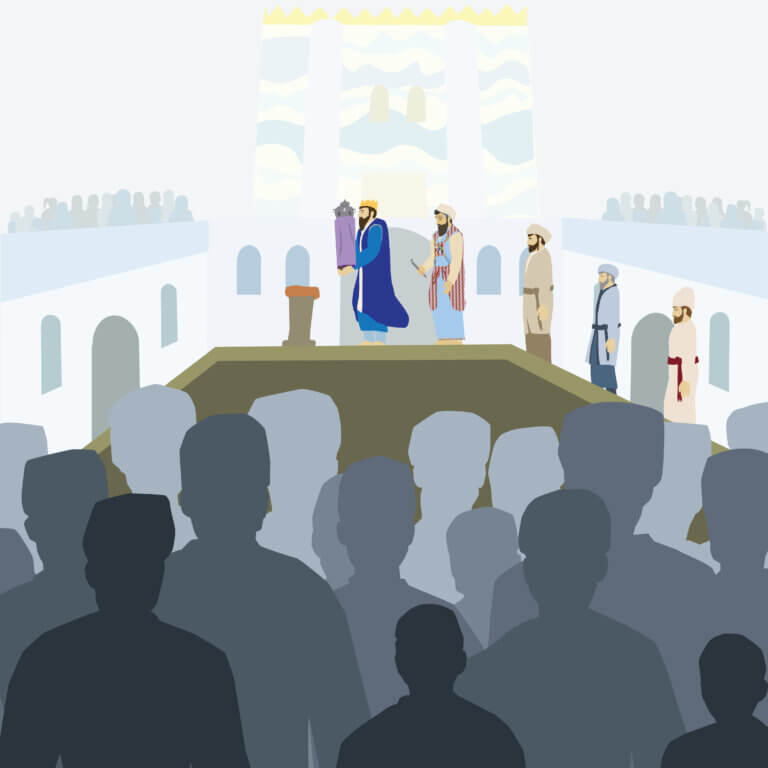Hayadan > Archive Dr. Yahyam whistles
Dr. Yahyam whistles
- Dr. Yahyam whistles
- April 27, 2024
- 3 תגובות
Continuation of the review on the various musical instruments that were used in the temple at the end of the Second Temple, with Greek influence
- Dr. Yahyam whistles
- March 30, 2024
- No comments
In this chapter we will review the development of stringed instruments
- Dr. Yahyam whistles
- February 22, 2024
- 5 תגובות
In this chapter, regarding its various sections, I would like to highlight the following points: distinction between the musical instruments in the Bible and those of the period under discussion and the various consequences thereof; the extent of the influence of Greekness and Hellenism on musical instruments; Were there original Jewish musical instruments? Character of Jewish music.
- Dr. Yahyam whistles
- November 25, 2023
- No comments
In the Jewish music after the Holocaust, signs of Greek-Hellenistic and Roman influence were embedded, and from it various aspects emerge as a result of the involvement of sages
- Dr. Yahyam whistles
- September 14, 2023
- No comments
The Jews in the Greek-Hellenistic space were more involved in everything related to Greek customs that penetrated Judaism such as the hemansion and especially music
- Dr. Yahyam whistles
- July 29, 2023
- One response
It has already been mentioned several times the brave connection forged between Greek and Hellenistic philosophy and music - the Pythagorean school that attributed a supreme moral value to music, the Platonic school that insisted on the relationship between music and human nature and moral condition, and similarly the Aristotelian school. These philosophies penetrated Judea during the days of Roman rule
- Dr. Yahyam whistles
- July 8, 2023
- No comments
King Herod sought, in accordance with Roman policy, to integrate the Jewish kingdom under his leadership into the global culture of the Roman-Hellenistic Empire
- Dr. Yahyam whistles
- June 2, 2023
- No comments
Compared to the countless sources concerning the music in the temple, there is little information about the sand music, and yet the research brings up interesting things
- Dr. Yahyam whistles
- April 21, 2023
- No comments
Reading motivated by the Torah and prayers was an important, immanent element, in imparting the Torah and midrashes and Sages went into the depth of the importance of the Na'ima which served as an important means of sharpening the memory and flourished from the Mishna period onwards
- Dr. Yahyam whistles
- March 17, 2023
- No comments
The beginning of the institution of the synagogue is rooted in the gatherings of the people in the temple in the days of Ezra the scribe and the reading of the Torah from his mouth. At first, the gathering was intended for Torah reading, while the liturgical element was added later, such as midrash and Torah study.
- Dr. Yahyam whistles
- February 24, 2023
- No comments
Rabbi Yochanan ben Zakhai, who moved from Jerusalem to Livna and made major changes in religious practice after the Holocaust, is also responsible for the disappearance of the vocal music of the Temple, and the transition of only vocal music to the synagogues, with one exception - the shofar
- Dr. Yahyam whistles
- November 26, 2022
- No comments
- Dr. Yahyam whistles
- October 10, 2022
- One response
The shofar that stars on Rosh Hashanah and Yom Kippur was a central instrument among the wind instruments in a temple. next to the trumpets. It was transformed from its previous roles as an announcer of important events - coronations of kings and wars and became a ritual instrument, and from the horn of Yael it was preceded by the horn of Eyal
- Dr. Yahyam whistles
- September 16, 2022
- 2 תגובות
The music in the temple was an important element in the celebrations of the three pilgrimages, with the many pilgrims who arrived in Jerusalem
- Dr. Yahyam whistles
- August 7, 2022
- 2 תגובות
One of the cardinal areas that highlighted the image of the second temple was the pilgrimage three times a year. The Ascensions, both as a framework and as a means, in which the many areas of the people's attachment to his temple were expressed and revealed. Much of the music in the temple focused on these days of pilgrimage
- Dr. Yahyam whistles
- July 9, 2022
- No comments
- Dr. Yahyam whistles
- June 17, 2022
- 2 תגובות
We have already discussed the importance of the body known as "the funeral cadets". We will point here to another body called "the flowers of the priesthood". The flowers of the priesthood took a particularly prominent place in the issue of Yom Kippur, because in this ceremony the figure of the high priest rose, unlike other events that took place in the temple.
- Dr. Yahyam whistles
- May 13, 2022
- No comments
The thing that stands out in the traditions is that singing in the temple was an inseparable part of the actual work, from the work of the temple to the point of distinguishing that even "singing" is "work". This work, it should be noted, is based on the establishment of music in the Temple throughout the days of the Second Temple.
- Dr. Yahyam whistles
- April 29, 2022
- One response
In the past we pointed to the important family element found in the temple's musical system. This phenomenon was common in neighboring Egypt and Mesopotamia. So much so that it took shape towards the establishment of musical guilds with a family foundation. Turns out there were a lot of musical roles
- Dr. Yahyam whistles
- April 27, 2022
- 2 תגובות
From harp and violin, through bells, trumpets and of course up to trumpets - each instrument had special instructions during the Second Temple period
- Dr. Yahyam whistles
- March 12, 2022
- No comments
In the second temple in Jerusalem, sacrifices were made, twice a day, for the peace of the emperor and the peace of Rome, as a practice that spread from the time of the emperor Augustus onwards - a period corresponding to the reign of King Herod) and was associated with bravery in music, in a way that until then was considered as foreign worship
- Dr. Yahyam whistles
- February 18, 2022
- No comments
During the time of the last Jewish kings, the Roman government rarely interfered with the internal affairs, therefore an orderly continuation was possible with regard to the Temple and within it - the musical management
- Dr. Yahyam whistles
- January 9, 2022
- 6 תגובות
The music customs in the temple during the Maccabean and Hasmonean times are under Greek influence
- Dr. Yahyam whistles
- December 10, 2021
- No comments
In this chapter I will review the development of temple music from the end of the days of Ezera and Nehemiah until the outbreak of the Maccabean rebellion
- Dr. Yahyam whistles
- November 19, 2021
- 2 תגובות
The music in the temple on the days of Shibat Zion went through several incarnations while changing from loud-rhythmic music to mixed and pleasant music

